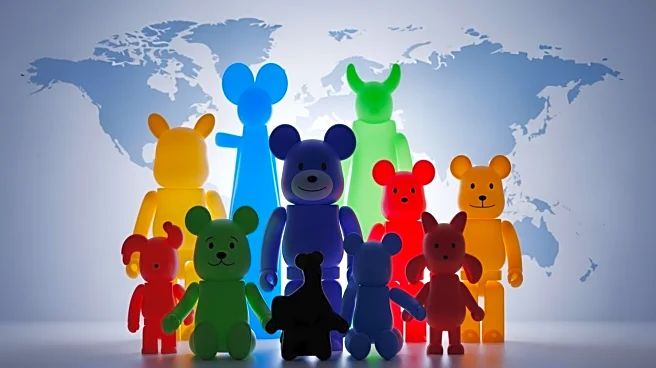What's Happening?
Mattel, the toy manufacturer known for brands like Barbie and Hot Wheels, reported third-quarter earnings that fell short of Wall Street expectations. The company's North American sales were significantly
impacted by ongoing global tariffs, leading to a 12% decline in the region. Mattel's net income for the quarter was $278 million, down from $372 million the previous year. The company has been adjusting its pricing strategy in response to higher input costs due to tariffs imposed by the Trump administration. Despite challenges in the U.S. market, international sales saw a 3% increase. Mattel's CEO, Ynon Kreiz, noted that retailer ordering patterns have shifted, but expressed optimism about the company's fundamentals.
Why It's Important?
Mattel's earnings miss underscores the broader impact of tariffs on the toy industry, which relies heavily on international supply chains. The decline in North American sales reflects the challenges faced by manufacturers in adapting to increased costs and changing market dynamics. The company's decision to raise prices in the U.S. highlights the pressure on businesses to maintain profitability amid trade policy shifts. The performance of major brands like Barbie and Fisher-Price, which saw sales declines, indicates potential shifts in consumer preferences and market competition.
What's Next?
Mattel has issued full-year guidance, anticipating net sales growth between 1% and 3%. The company is focusing on expanding its entertainment offerings and leveraging new technology to drive future growth. Mattel's partnership with Hasbro and Netflix to produce merchandise tied to the film 'KPop Demon Hunters' represents a strategic move to capitalize on entertainment trends. As tariffs continue to affect the industry, Mattel may need to further diversify its sourcing and explore new markets to mitigate risks.
Beyond the Headlines
The ongoing tariff situation raises questions about the sustainability of global supply chains and the potential need for companies to rethink their sourcing strategies. Mattel's focus on entertainment and technology reflects broader industry trends towards digital integration and brand diversification. The company's ability to adapt to these changes will be crucial in maintaining its competitive edge in the evolving toy market.









